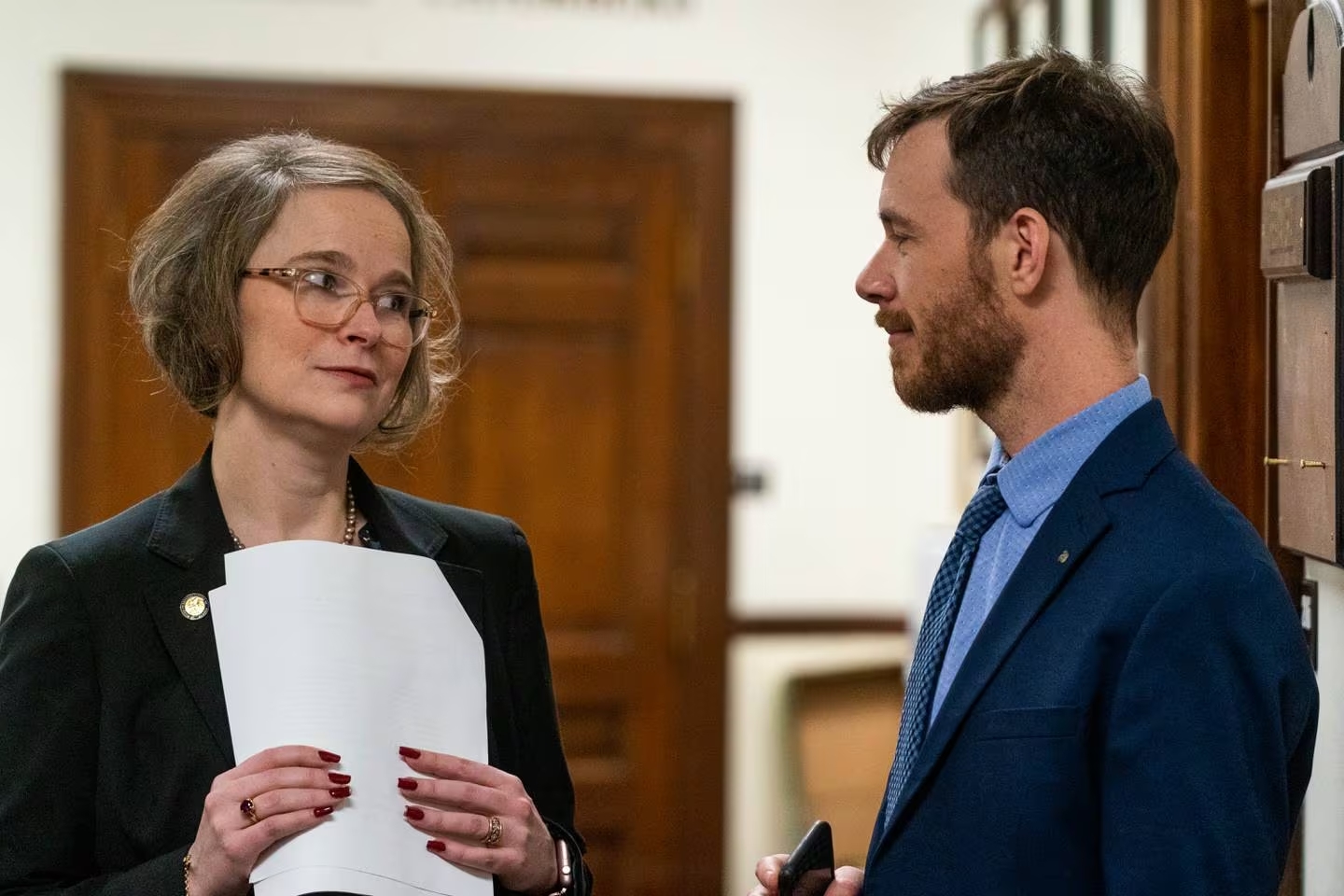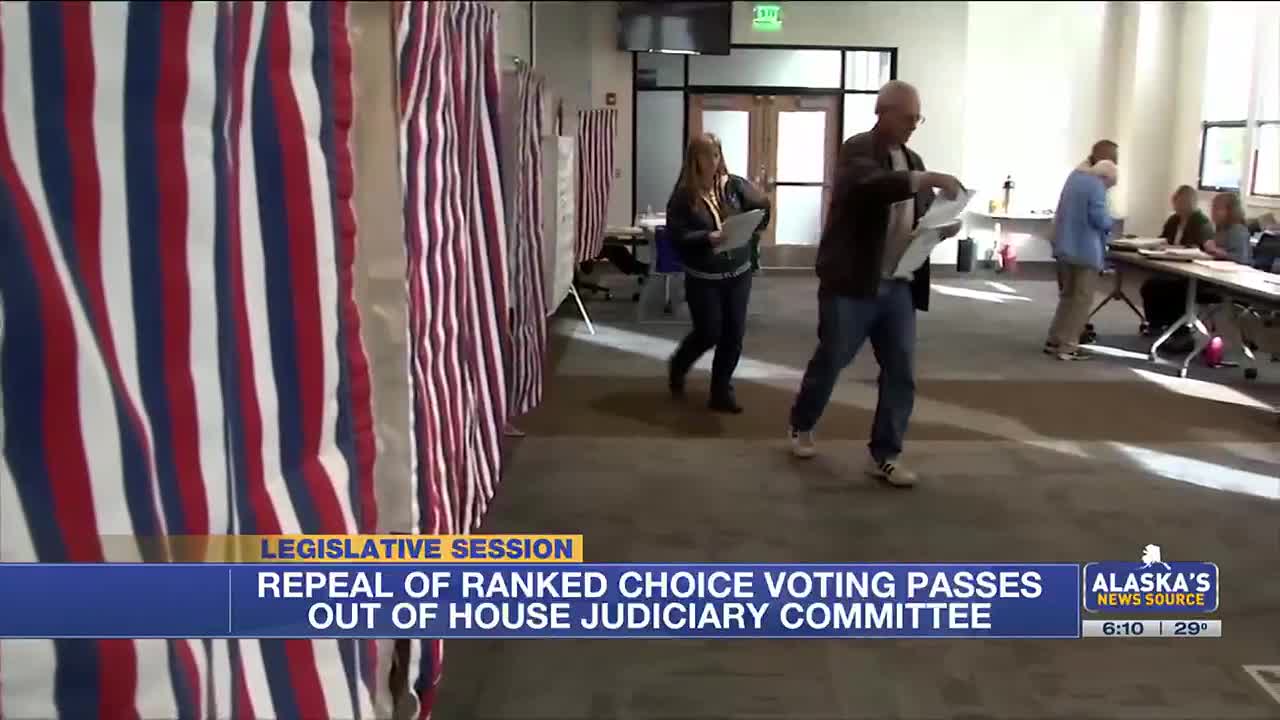Republican Rep. Sarah Vance led a bill to eliminate ranked choice voting and open primaries through the Alaska House Judiciary Committee. Alaskans narrowly approved a 2020 ballot question to reform voting laws, which the proposed legislation would repeal. This proposal mandated political campaign contribution reporting, open primaries, and ranked-choice voting in general elections. The House Finance Committee will consider the bill after a party-line vote of five Republicans and two Democrats.

Photo from Alaska Public Media
Alaska House Committee Sparks Controversy: Advances Bill to Repeal Ranked Choice Voting and Open Primaries
The bill was sponsored last year by Homer Republican Rep. Sarah Vance to oppose the changes to the 2020 ballot measure. The proposal replaced Alaska’s closed primaries with open primaries, introduced ranked choice voting, and required campaign contributor reporting in 2022. These measures boost the election of candidates by appealing to a broader voting base, fostering cross-party cooperation, say proponents. Critics say the new voting regulations hurt conservative Republicans.
The committee voted on the newest bill, which repeals ranked choice voting, open primaries, and campaign reporting. Vance’s amendment, passed 5-2 party-line, is opposed by Democrats who see it as an attempt to overturn the people’s choice. Democrats say Alaska’s new voting laws have public support, but they worry about the repeal of campaign reporting regulations permitting more campaign financing opacity.
Anchorage Democrat Rep. Andrew Gray called the bill an attempt to subvert the voters’ decision and condemned its influence on campaign funding transparency. Nikiski Republican Rep. Ben Carpenter called “dark money,” utilized by reporting requirement advocates, a scare tactic. Carpenter claimed that reporting requirements do not increase transparency and suggested “buyer’s remorse” in ranked-choice voting.
READ ALSO: Biden’s Crisis Crossroads
Alaska Faces Voting Law Reversal: Bill to Repeal Ranked Choice Voting Spurs Controversy, Potential Public Communication Campaign
If the bill passes, the Division of Elections predicts a $2.5 million public communication campaign to notify voters of a return to old voting regulations. Vance believes a smaller amount would be appropriate given Alaskans’ voting experience before 2022. A ballot organization also seeks to overturn Alaska’s open primaries and ranked-choice voting procedures in 2024, independent of campaign reporting regulations.
The ballot proposal may be superfluous if the legislative bill repeals ranked choice voting and open primaries by the session’s end.

















































